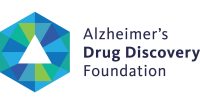Clinical Trials in Neurodegenerative Diseases
Currently Recruiting:

The Phase 2 START study is recruiting up to 540 individuals (50 to 85 years of age) in the United States who have early-stage Alzheimer’s disease. Participants will be randomized to receive either a standard-of-care treatment or the experimental candidate, zervimesine. The START study is being conducted in collaboration with the Alzheimer’s Clinical Trials Consortium (ACTC). More information may be found on clinicaltrials.gov under trial identifier NCT05531656.
Active, Not Recruiting:

Completed Studies:

The Phase 2 COG1201 ‘SHIMMER’ study enrolled 130 patients with mild-to-moderate dementia with Lewy bodies (DLB). Participants were randomized to receive one of two doses of the experimental candidate, zervimesine, or placebo for six months. More information about SHIMMER can be found on clinicaltrials.gov under trial identifier NCT04735536.
On December 18, 2024, Cognition conducted a webcast to review findings from the SHIMMER study. An archive of the call and supporting materials may be found here.

The Phase 2 SHINE study recruited 153 individuals (50 to 85 years of age) who have mild-to-moderate Alzheimer’s disease. Participants were randomized to receive one of two doses of the experimental candidate, zervimesine, or placebo for six months. More information may be found on clinicaltrials.gov under trial identifier NCT03507790.
On July 29, 2024, Cognition held a conference call to review topline findings from the SHINE study. An archive of the call and supporting materials may be found here. Cognition conducted a second call on October 30, 2024 to review findings of a pre-specified analysis of SHINE subgroups defined by their baseline plasma p-tau217 concentrations. An archive of this call and supporting materials may be found here.
SEQUEL
SPARC
SNAP
The Phase 1 COG0104 ‘SNAP’ study was a randomized, double-blind, placebo-controlled clinical trial that enrolled three patients with mild-to-moderate AD to measure the effects of zervimesine on displacement of Aβ oligomers. More information about SPARC may be found on clinicaltrials.gov under trial identifier NCT03522129.
Additional Resource for Patients and their Families
Clinical Trial Terminology
Before a novel product candidate can be approved, it must complete a rigorous clinical development process, which typically includes three distinct types of trials. Phase 1 clinical trials test experimental treatments at a variety of doses in healthy volunteers to understand how the candidate works in the human body and identify safety issues that may not have been apparent in preclinical research.
Following successful completion of Phase 1 trials, experimental therapies often advance into one or more Phase 2 trials to evaluate the efficacy and safety of a candidate in the target patient population. Goals for Phase 2 trials may include selecting an optimal dose or dosing regimen, identifying specific patient group who may respond to medication more or less favorably, and assessing the safety and tolerability profile. Meetings with the U.S. Food and Drug Administration and other countries’ regulatory authorities are held following the conclusion of Phase 2 clinical trials to review data before proceeding into the next phase of development.
Phase 3 trials are the final step in a product’s clinical develop and are designed to test the optimal dose or dosing regimen in a large number of people with a specific disease or condition. They aim to enroll people with diversity in race, gender, geography, and socioeconomic status to mirror the conditions in which a candidate might be used in the future when it’s broadly available.
Because these studies involve experimental treatments, all clinical trials are closely monitored by regulatory authorities as well as independent ethics committees (IECs) or institutional review boards (IRBs) to ensure that any safety issues that arise are carefully documented.
Expanded Access Policy
We are a clinical stage biopharmaceutical company engaged in the development of small-molecule therapeutics targeting age-related degenerative diseases. We currently have several clinical studies planned or underway that are designed to measure safety and efficacy outcomes of our experimental medication, zervimesine for patients with Alzheimer’s disease and dementia with Lewy bodies.
Due to the strong interest expressed by participants and families in our Phase 2 ‘SHIMMER’ study, we have opened a limited Expanded Access Program (EAP) for people with DLB. Due to regulatory requirements, we are unable to extend this program to other indications.
The DLB EAP, termed COG1202, will be open to people who participated in the SHIMMER study who meet specific eligibility criteria. The EAP may enroll additional adults with a diagnosis of mild-to-moderate DLB who meet the criteria for this program and are able to travel to the participating study sites. Enrollment will be extremely limited due to logistical constraints.
As an investigational drug, zervimesine has not been approved by regulatory authorities. Therefore, the safety and efficacy of zervimesine have not been fully characterized and there may be risks associated with its use. If you are a patient or caregiver wishing to know more about this EAP for DLB, we encourage you to discuss it with your treating physician.
If you are a treating physician and are seeking information about the zervimesine EAP or would like to request access for a patient, please contact EAP@cogrx.com. We expect to acknowledge inquiries within 5-7 business days.
Requests will be processed on a first-come / first-served basis. The EAP will remain open until the limited number of planned participants is met. More information is available on https://clinicatrials.gov under study identifier, NCT06961760.
At this time, we are not able to offer expanded access for other indications beyond DLB. Until zervimesine completes clinical development and is reviewed and approved by regulatory authorities, it can only be accessed through participation in our clinical trials. The START Study is currently enrolling people with early-stage Alzheimer’s disease. More information may be found on https://clinicaltrials.gov under trial identifier NCT05531656.






